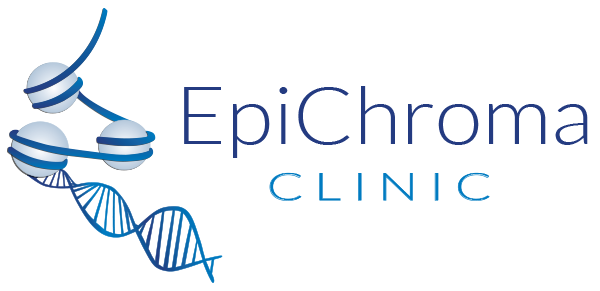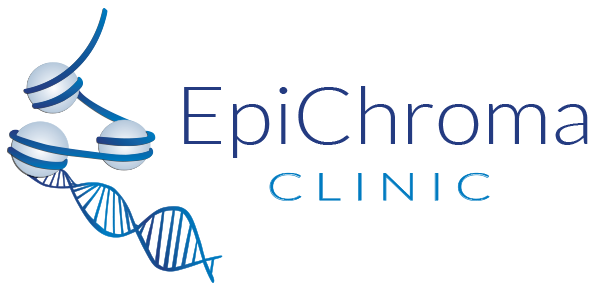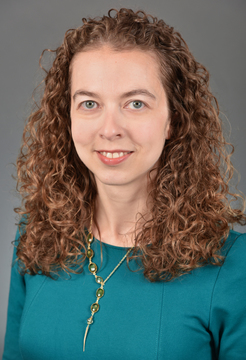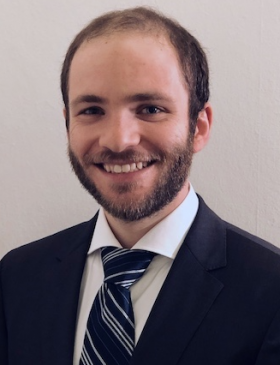About the Epichroma Clinic
The EpiChroma Clinic at Boston Children’s Hospital is a specialty clinic co-directed by Drs. Anne O’Donnell-Luria and Maximilian Horlbeck for children and adults with known or suspected disorders involving the genes that are important for chromatin. DNA in our cells is packaged into chromatin structures to fit into our cells while allowing regulation of which genes are expressed. Pathogenic variants in the genes important for forming chromatin can lead a number of medical problems due to epigenetic dysregulation. Common medical features may include under or over growth, intellectual disability, behavioral issues, and problems with immune function or limb structure. The diagnosis of a genetic condition can leave families and caregivers looking for more information, which is often hard to find for these rare conditions. Through our coordinated clinical network, we strive to provide a clinic where we can work with families to learn more about these conditions and share knowledge.

Our Purpose
To improve clinical management of patients by coordinating clinical care and providing a medical home for individuals and their families affected with these rare conditions. We provide education to providers and families to help individuals develop to their full potential.

Our Focus
- Diagnose and care for children and families with epigenetic disorders. These include disorders affecting histone or DNA methylation machinery (see list of disorders below)
- Improve management of these conditions by learning from patients and families
- Increase research on these disorders by working closely with families
- Educate providers and families about epigenetics and their associated disorders

Who Should Be Evaluated at the EpiChroma Clinic?
- Patients and families who have a diagnosis of a chromatin disorder (see condition list below)
- Patients whose clinician or family suspect a chromatin disorder
- Patients in whom a variant of uncertain significance (VUS) has been identified in a gene associated with a chromatin disorder
- Patients with developmental delay or intellectual disability and additional features such as overgrowth, undergrowth, extra hair, unusual eyes, abnormal limbs or hands/feet
List of Some of the Conditions Seen in the EpiChroma Clinic:
- Alpha thalessemia and intellectual disability (ATRX)
- Autism (CHD8)
- Autosomal dominant intellectual disability 1 (MBD5)
- Autosomal dominant intellectual disability 23 (SETD5)
- Autosomal dominant intellectual disability 32 (KAT6A)
- Bainbridge-Ropers syndrome (ASXL3)
- Bohring-Opitz syndrome (ASXL1)
- Borjeson-Forssman-Lehmann syndrome (PHF6)
- Brachydactyly MR syndrome (HDAC4)
- Cerebellar ataxia, deafness, and narcolepsy (DNMT1)
- CHARGE syndrome (CHD7)
- Chondrodysplasia with platyspondyly, distinctive brachydactyly, hydrocephaly, and microphthalmia (HDAC6)
- Cleft palate, psychomotor retardation, and distinctive facial features (KMD1A)
- Coffin-Lowry syndrome (RPS6KA3, aka RSK2)
- Coffin-Siris syndrome 1 (ARID1B)
- Coffin-Siris syndrome 4 (SMARCA4)
- Floating-Harbor syndrome (SRCAP)
- Genitopatellar syndrome (KAT6B)
- Immunodeficiency-centromeric instability-facial anomalies syndrome 1 (DNMT3B)
- Kleefstra syndrome 1 (EHMT1)
- Kleefstra syndrome 2 (KMT2C)
- KMT2E-associated intellectual disability (KMT2E)
- Luscan-Lumish syndrome (SETD2)
- Neuropathy, hereditary sensory, type IE (DNMT1)
- Nicolaides-Baraitser syndrome (SMARCA2)
- Oculofasciocardiodental syndrome or Syndromic micro-ophthalmia (BCOR)
- Opitz-Kaveggia syndrome (MED12)
- Rubinstein-Taybi syndrome 1 (CREBBP)
- Rubinstein-Taybi syndrome 2 (EP300)
- Schinzel-Giedion (SETBP1)
- Shashi-Pena syndrome (ASXL2)
- Sotos syndrome (NSD1)
- Tatton-Brown-Rahman syndrome (DNMT3A)
- Weaver syndrome 2 (EZH2)
- Wiedemann-Steiner syndrome (KMT2A)
- X-linked intellectual disability 33 (TAF1)
- X-linked intellectual disability 93 (BRWD3)
- X-linked intellectual disability Claes-Jensen type (KDM5C)
- X-linked intellectual disability, Siderius type (PHF8)
Additional Programs at Boston Children's Hospital
There are several epigenetic disorders that are specifically supported by targeted programs at Boston Children’s Hospital:
- Kleefstra Syndrome Clinic
- Roya Kabuki (KMT2D, KDM6A) Program
- Cornelia de Lange and Related Disorders Clinic
- Fragile X (FRX) Program
- Rett Syndrome (MECP2) Program
- General Genetics Services
- The Division of Genetics and Genomics at BCH is available to see children and young adults with a wide range of medical conditions.
Our Team
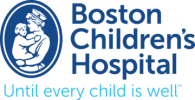
A Teaching Hospital of

